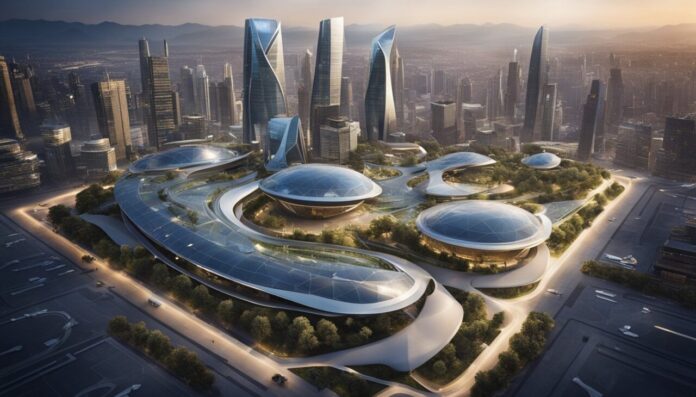
Everyone remembers those dull and gray concrete buildings still being built around the world.
But soon, those will become a thing of the past.
Namely, as technology advances at an unparalleled rate, cities around the world are starting to embrace the future with innovative designs and cutting-edge technology.
These ultra-futuristic cities are planned to be built in the near future, and they offer a hint into what life could be like in the years to come.
The cities mentioned in this article will be designed as super smart cities, with advanced technology integrated into every aspect of daily life.
So, let’s begin.
We present to you the top 5 futuristic cities planned to be built in the not-so-distant future.
1. The Line – Saudi Arabia
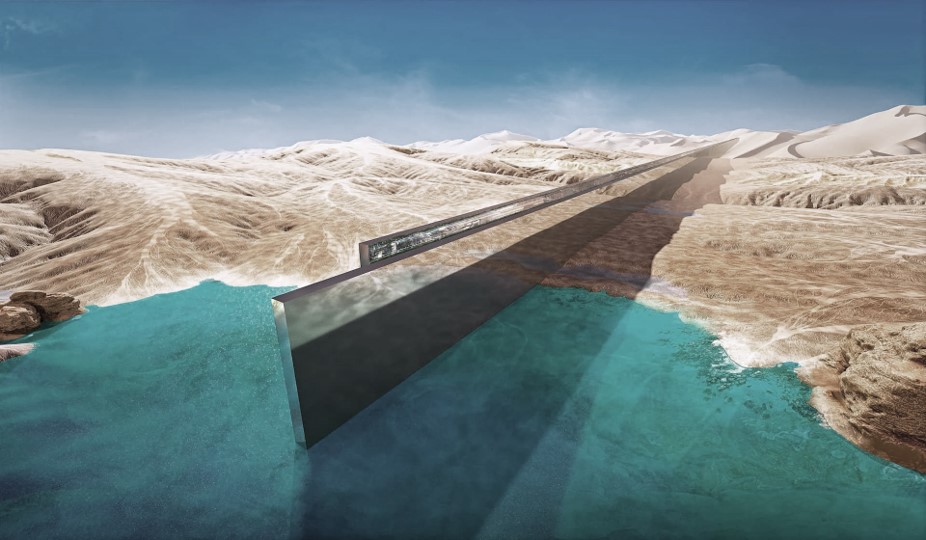
The Line is a proposed futuristic city in Saudi Arabia that aims to revolutionize the way we live. The city is designed to be a 170-kilometer-long linear development that will be home to a million people.
The Line will be powered entirely by renewable energy and will have no cars, roads, or carbon emissions. Instead, it will rely on autonomous vehicles and walkways to transport people and goods.
The city will be divided into five different zones, each with its own specific purpose.
The first zone will be the “Cognitive Zone,” which will be home to research and development centers for artificial intelligence and robotics.
The second zone will be the “Mobility Zone,” which will focus on transportation and logistics.
The third zone will be the “Living Zone,” which will be where people will live and work.
The fourth zone will be the “Resource Zone,” which will be dedicated to agriculture and water production.
The fifth and final zone will be the “Energy Zone,” which will generate all the renewable energy needed to power the city.
The Line is set to be completed by 2030, and it is estimated to cost around $500 billion. The project is part of Saudi Arabia’s Vision 2030 plan, which aims to diversify the country’s economy and reduce its dependence on oil.
Interesting fact: The Line is designed to be a zero-carbon city, meaning that it will emit no greenhouse gases and will have a minimal impact on the environment.
2. The Orbit – Canada
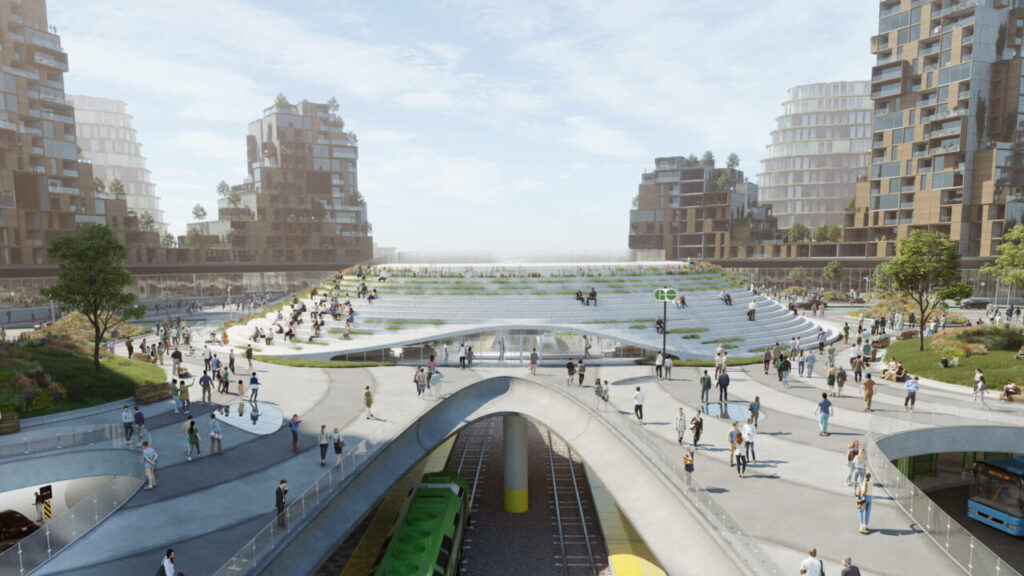
In the quiet town of Innisfil, Ontario, there is an interesting project is underway—the creation of The Orbit, a visionary city that defies traditional urban planning.
At the center of The Orbit will be the Innisfil GO Station. It will become central hub connecting residents to Toronto and beyond. This strategic location will ensure seamless mobility, reducing reliance on private vehicles and promoting sustainable transportation.
Architects discarded conventional street grids in favor of concentric ripples known as “squircles”. These geometric patterns will radiate from the GO Station, outlining distinct zones.
Each squircle will serve a purpose—residential, commercial, cultural, or green space.
The Orbit will span across 40 million square feet. Its design anticipates a population surge—from 30,000 to 150,000 residents.
In summary, The Orbit will rise above the simple architecture and it will embody a scientific vision—a demonstration of human ingenuity and our quest for a harmonious coexistence with nature.
3. Telosa – USA
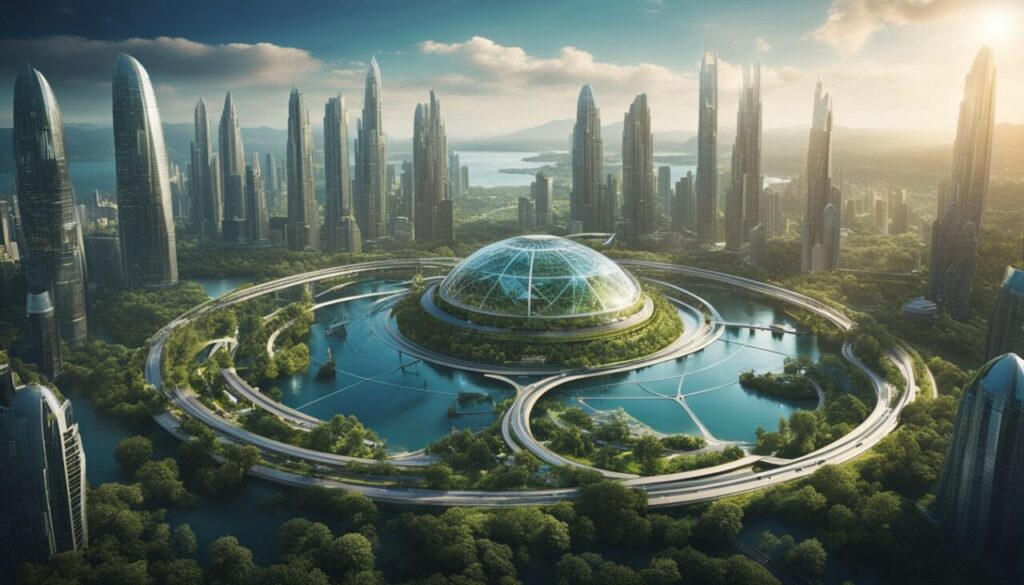
Located in the state of Arizona, Telosa is a proposed city that aims to be the most sustainable and equitable city in the world. The city’s name is derived from the Greek word “tēlos,” which means “highest purpose.”
The city’s founder, Marc Lore, envisions Telosa as a city that is powered entirely by renewable energy, with a focus on walkability and green spaces. The city is planned to have a population of 5 million people, with a mix of residential, commercial, and industrial areas.
Telosa’s design includes a central park that is larger than Central Park in New York City, and the city’s transportation system will be based on a network of underground tunnels that will move people and goods efficiently and sustainably.
The city’s development is still in its early stages, but Lore has already secured funding from investors and plans are that the first residents will start moving in by 2030.
Interesting fact: Telosa's design was inspired by the concept of a "15-minute city," where residents can access all their daily needs within a 15-minute walk or bike ride.
4. BiodiverCity – Malaysia
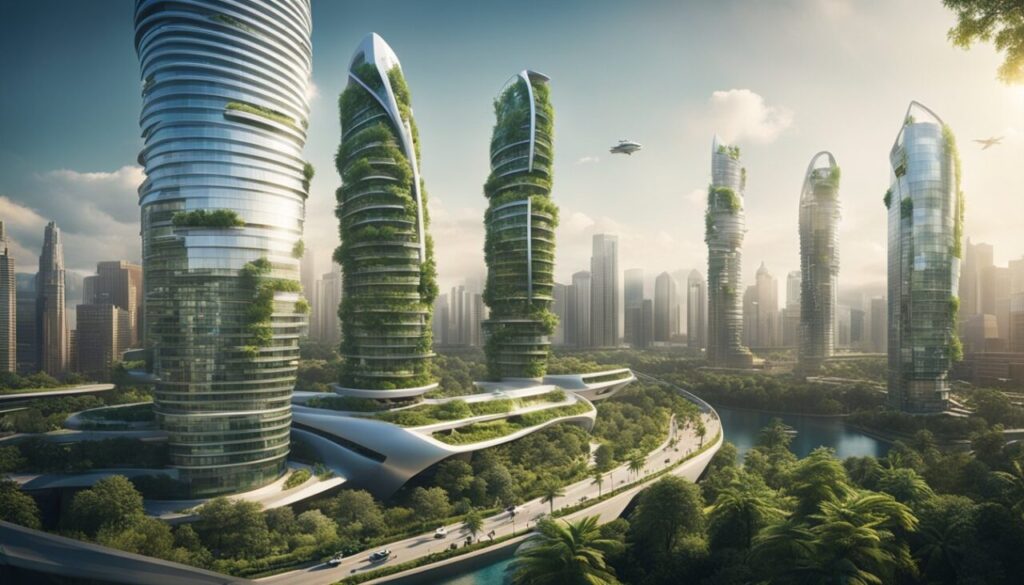
BiodiverCity is a project that was launched in 2017 by the Malaysian government with the aim of creating a sustainable and eco-friendly city. The project is located in Iskandar, Johor, and aims to integrate green spaces, modern technology, and sustainable practices to create a city that is in harmony with nature.
One of the key features of BiodiverCity will be the use of vertical gardens, which will be designed to provide greenery and reduce the urban heat island effect. The city will also incorporate sustainable practices such as rainwater harvesting and greywater recycling to reduce water usage.
Additionally, BiodiverCity will have a comprehensive waste management system that includes recycling and composting.
BiodiverCity will also be home to a number of green spaces, including parks, gardens, and nature reserves.
These areas will provide residents with access to nature and help to promote biodiversity within the city.
Hence the name – BiodiverCity.
5. Chengdu Future City – China
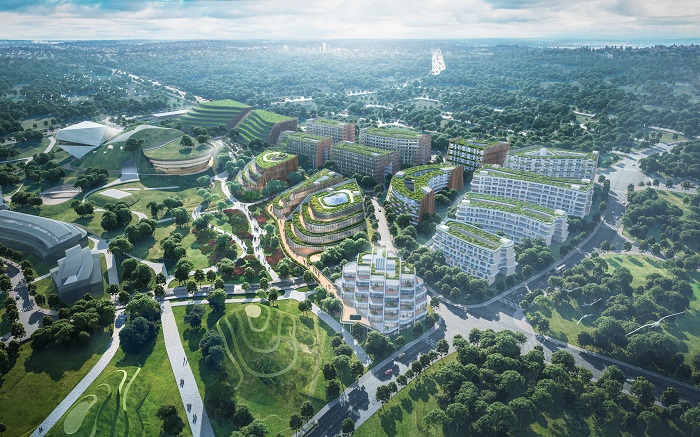
Chengdu Future City is a project that aims to create a new, innovative city in the heart of China. The city is planned to be built on a 4.6 square kilometer site. Once completed, Chengdu Future City will be a hub for technology and innovation, with a focus on sustainable living and green energy.
The city will feature a range of cutting-edge technologies, including smart grids, intelligent transportation systems, and advanced waste management systems. It will also have a range of green spaces, including parks, gardens, and green roofs, which will help to reduce the city’s carbon footprint.
Interesting fact: Chengdu Future City is planned to be a car-free city.




























